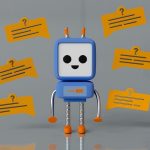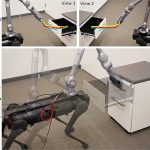AI chips get a time sense: a leap in efficient processing
Artificial neural networks, which power many AI tools, may soon process time-dependent information like audio and video more efficiently thanks to a new development.
Researchers...
Scientists develop world’s smallest quantum light detector on a silicon chip
Researchers at the University of Bristol have achieved a major breakthrough in quantum technology by developing the world’s smallest quantum light detector on a...
How chatbots may be reinforcing our beliefs
Researchers at Johns Hopkins University have found that chatbots might not be as neutral as many people think.
Instead of providing unbiased information, chatbots often...
Scientists develop faster method for programming quantum computers
Researchers have developed a groundbreaking technique that significantly speeds up the process of finding the best operational paths, or "gate sequences," for quantum computers.
This...
New silicon chip brings quantum computing closer to reality
Researchers from the Universities of Melbourne and Manchester have made a groundbreaking advancement in quantum computing technology, introducing a highly purified silicon chip that...
AI may help doctors spot heart rhythm diseases earlier
A new study from the Smidt Heart Institute, in collaboration with Cedars-Sinai colleagues, introduces a new artificial intelligence (AI) program capable of detecting atrial...
Scientists find new way to teach robots to move through sketches
Researchers at Carnegie Mellon University's Robotics Institute are revolutionizing the way robots learn to move by using a simple and intuitive method: sketching trajectories.
This...
Scientists develop new low-cost, high-efficiency circuit for faster Internet and computing
Scientists at EPFL and the Shanghai Institute of Microsystem and Information Technology have made a significant breakthrough in the world of photonics, creating a...
Scientists discover vulnerability in cloud server hardware used by AMD and Intel chips
Researchers at ETH Zurich have made a significant breakthrough in understanding cloud server security.
They discovered vulnerabilities in the hardware used by AMD and Intel...
How 3D printing is making waves
Researchers at the National Renewable Energy Laboratory (NREL) and the Pacific Northwest National Laboratory are harnessing the power of 3D printing to transform marine...








